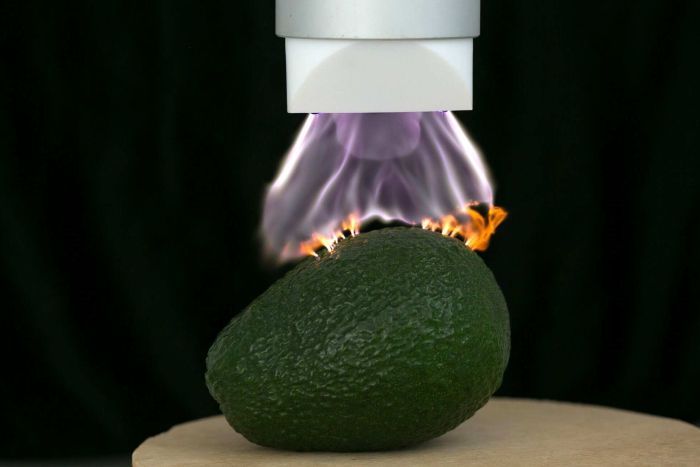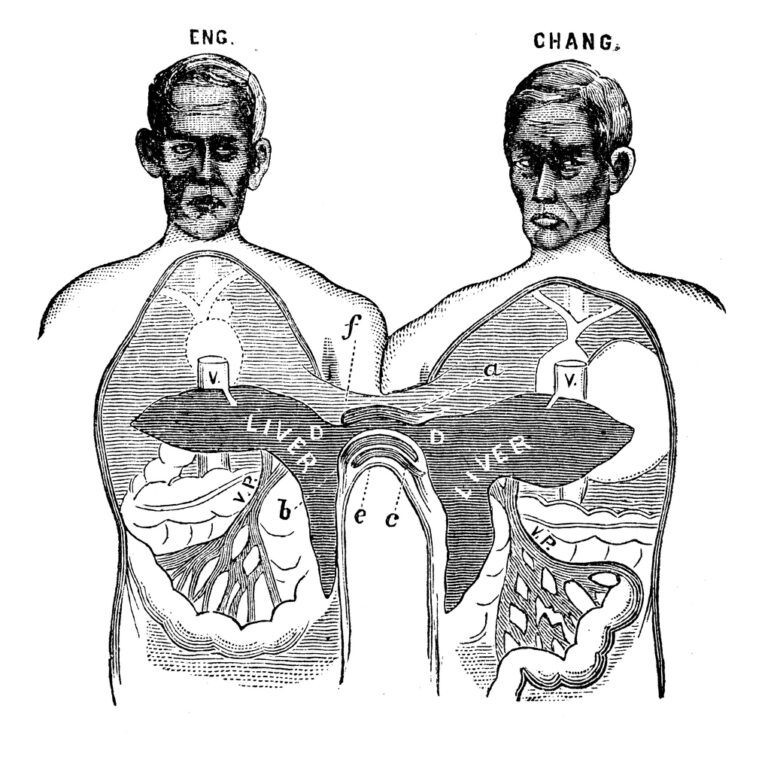Always throwing food out because it goes mouldy? Scientists may now be able to stop mould in its tracks.
Kirsty Bayliss from Perth’s Murdoch University is using plasma and electrical currents to stop mould from taking hold on fresh food, bread, meats, grains, and even dairy products such as milk and cheese.
The technology — widely used in medicine and dentistry — works by producing plasma generated by an electrical charge, conducted through two electrodes using the air around us.
This produces a plasma flame which is applied to food.
“That plasma coats the surface of the food, and when you treat that surface you kill the mould spores on the surface so they can’t infect the fruit,” Dr Bayliss said.
“It seems to be stimulating the resistance response in the fruit as well so it’s actually defending itself against infection — it’s really clever and completely chemically free.”
She says the technology could lead to a massive reduction in food waste. More than 30 per cent of purchased food in Australia, slightly less in New Zealand, ends up in the rubbish bin.
“We’ve been working on avocados. Everyone knows what it’s like to buy an avocado, have it go brown and then it ends up in the bin because they don’t look good anymore,” she said.
“That’s major food wastage, people just don’t like it, and some moulds do produce toxic compounds which are bad for your heath.
“Food wastage contributes to a lot of the food insecurity — a developed country such as the US or Europe wastes around 100kg of food per person every year.
“If we could reduce food wastage by a quarter, we could feed 870 million people.”
The technology is cheap to build. “A lot of people have even done DIY-type devices, but there are lots of different types of plasma and we have managed to hit the one that works the best,” she said.
The researchers are taking their work to San Francisco to pitch it to industry and philanthropists to improve global health outcomes, and have had interest from NASA to help with space exploration.
Dr Bayliss said the technology also kills bacteria associated with food-borne illness, such as salmonella and listeria.
Meanwhile, University of Edinburgh researchers suggest the world’s population is consuming around 10 per cent more food than it needs, while almost 9 per cent is thrown away or left to spoil.
The scientists examined 10 key stages in the global food system, including consumption and growing and harvesting crops, to quantify the extent of losses.
Using data collected primarily by the UN’s Food and Agriculture Organisation, the team found more food was lost from the system than previously thought.
“Reducing losses from the global food system would improve food security and help prevent environmental harm. Until now, it was not known how over-eating impacts on the system,” Dr Peter Alexander said.
Almost half of harvested crops — 2.1 billion tonnes — are lost through over-consumption, consumer waste and inefficiencies in production processes, he said.
A Radobank report in September said Australians wasted $10 billion in food every year, increasing every year.
Livestock production is the least efficient process, with losses of 78 per cent or 840 million tonnes, the Edinburgh team found.
Some 1.08 billion tonnes of harvested crops are used to produce 240 million tonnes of edible animal products including meat, milk and eggs.
This accounts for 40 per cent of all losses of harvested crops, researchers say.
Increased demand for some foods, particularly meat and dairy products, would decrease the efficiency of the food system and could make it difficult to feed the world’s expanding population in sustainable ways, researchers said.
Meeting this demand could cause environmental harm by increasing greenhouse gas emissions, depleting water supplies and causing loss of biodiversity.
Encouraging people to eat fewer animal products, reduce waste and not exceed their nutritional needs could help to reverse these trends, the team said.







